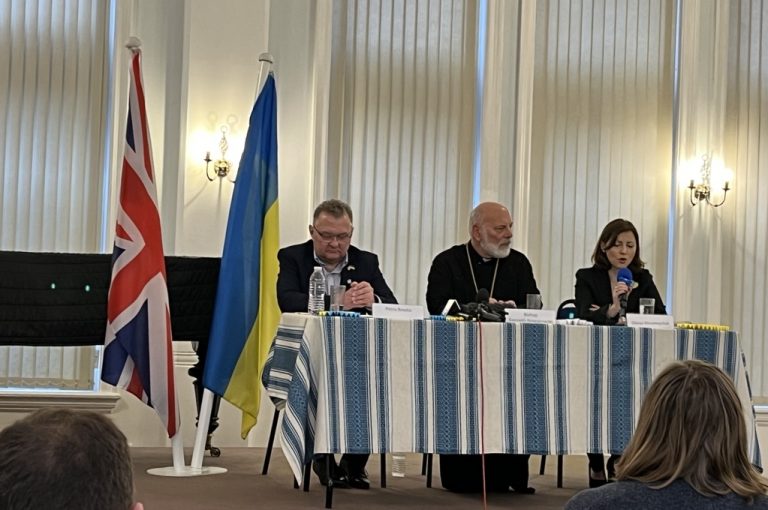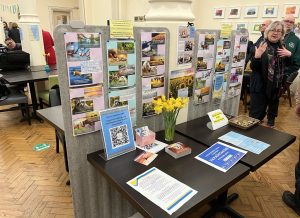UK/UKRAINE: Two years on – binding the wounds of unimaginable suffering

Desperate Ukrainian families torn apart by the war look to the Church for support – but the clergy are also under huge pressure and need urgent help – according to a bishop of the Ukrainian Greek Catholic Church (UGCC).
Speaking on the eve of the second anniversary of the conflict, Bishop Kenneth Nowakowski, Head of the UGCC’s Pastoral Council and Bishop of the Eparchy of Holy Family of London, told Catholic charity Aid to the Church in Need (ACN) that an initiative called ‘Healing the Wounds of War’ is a priority for Ukrainian bishops around the world.
Speaking at a press conference followed by an interview with ACN at the Cathedral of the Holy Family in London’s Mayfair yesterday (Thursday, 22nd February), Bishop Nowakowski said that supporting displaced and broken families is the Church’s primary focus – but the “clergy family” providing pastoral care also need assistance.
He added that the Church is developing training programmes for clergy in Ukraine and beyond “who, day in and day out have to be dealing with funerals and having to counsel” victims of war.
Bishop Nowakowski explained that seminaries do not prepare clergy for the highly demanding trauma counselling duties which is required of many of them.
He added: “We cannot make priests psychiatrists or psychologists in six easy lessons.
“But we can at least prepare them to be able to direct people to the right places to receive help and [assist them to cope with] the effects of hearing these stories and having to deal with so many deaths – not just ordinary, normal deaths but people dying in war.”
He explained that the UGCC has been training clergy to be able to “assist in family break-ups and separation”.
The UGCC is also working with other organisations, such as the Association of Ukrainian Women in Great Britain, to provide mental health support for refugees – mostly women with dependent children.
There are more than 6.3 million Ukrainian refugees around the world – about 170,000 of them in the UK – and up to 3.7 million internally displaced people (IDPs) in Ukraine, according to the United Nations Refugee Agency.
Bishop Nowakowski said that he is in regular contact with eparchies throughout Ukraine and abroad, and common challenges include supporting “children who have been separated from their parents, from their home for what seems like half a lifetime for them”.
He added: “In the Ukrainian Catholic Cathedral in London we have a Sunday programme attended by about 250 children.
“We also have a Saturday programme through [St Mary’s] Ukrainian School with almost 2,000 children involved.”
Programmes include creative activities, interfaith services, mental health support and safeguarding initiatives.
Bishop Nowakowski said that many Ukrainian refugees living in London visit the Cathedral’s Welcome Centre in search of hope and spiritual consolation, and they “often pray together for those who have died” – while others “just want to talk to a priest because they need someone to listen to them”.
The bishop explained that the Church in Ukraine has been working tirelessly to give people the assistance they need, both material and spiritual, “without either telling them to stay or encouraging them to leave”.
He concluded: “Our responsibility is to find out what help people need and do our best to help them.”
ACN has supported 600 projects in Ukraine in the last two years, including 11 counselling and pastoral centres, as well as summer camps for children and heating systems for Church buildings sheltering IDPs.

